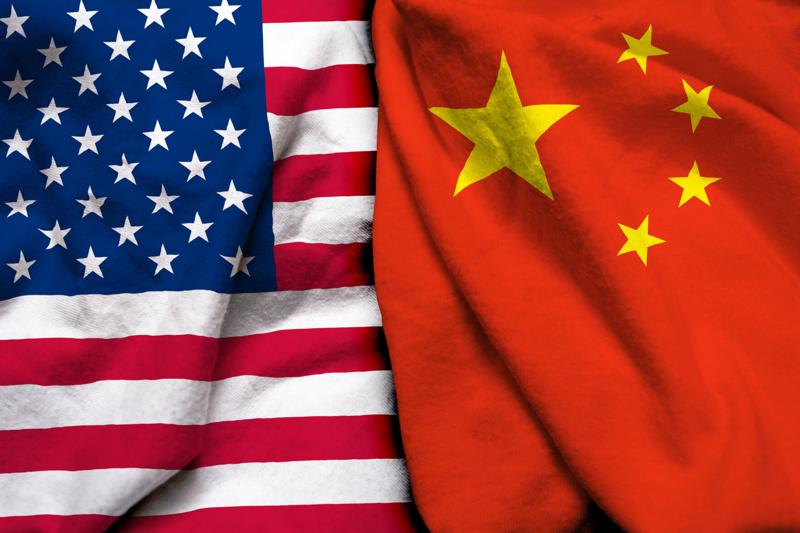After the greatest number of Chinese nationals illegally entered the country under the Biden administration – more than 176,000, creating national security threats – President Joe Biden and his administration announced several actions.
Biden issued an executive order in November extending for another year a national emergency “to deal with the unusual and extraordinary threat to the national security, foreign policy, and economy of the United States constituted by the threat from securities investments that finance certain companies of the People’s Republic of China (PRC).”
He first declared a national emergency on Nov. 12, 2020, citing the International Emergency Economic Powers Act, twice extending and amending it in 2021.
The November 2024 order states “the PRC is exploiting United States capital to resource and enable the development and modernization of its military, intelligence, and other security apparatuses, which continues to allow the PRC to directly threaten the United States homeland and United States forces overseas.”
The PRC is using a military strategy to increase China’s “military-industrial complex by compelling civilian Chinese companies to support its military and intelligence activities,” the order states. While the companies remain “ostensibly private and civilian,” they “directly support the PRC’s military, intelligence, and security apparatuses and aid in their development and modernization. At the same time, those companies raise capital by selling securities to United States investors that trade on public exchanges both here and abroad, lobbying United States index providers and funds to include these securities in market offerings, and engaging in other acts to ensure access to United States capital.”
The order also cites Chinese surveillance technology being used outside of the PRC “and the development or use of Chinese surveillance technology to facilitate repression or serious human rights abuse.”
These activities “constituted an unusual and extraordinary threat to the national security, foreign policy, and economy of the United States,” the order states, necessitating extending the national emergency.
Also in November, the U.S. Department of Homeland Security announced U.S. Immigration and Customs Enforcement agents “conducted a third large-frame charter removal flight in less than six months to the People’s Republic of China (PRC) of Chinese nationals with no lawful basis to remain in the United States.”
The announcement fails to mention how many were removed in three flights. Instead, DHS claims three flights are “yet another example of the Department’s ongoing cooperation with the PRC and other international partners to reduce and deter irregular migration through enforcement of immigration law.”
Under the Biden administration, the majority of Chinese illegally entering the U.S. were single, military age men. They total more than 176 U.S. Army battalions. Put another way, they total more than 35 Army brigades, or nearly 12 divisions or nearly four corps, according to U.S. Department of Defense data.
By contrast, under the Obama and Trump administrations, there were roughly 15,000 Chinese illegal border crossers at the southwest border alone, averaging 1,000 a year from fiscal years 2007-2021, according to CBP data, The Center Square reported.
Under Biden, numerous national security concerns were raised by members of Congress in response to Chinese nationals accessing military bases and other sensitive sites nearly 100 times, Chinese cyberattacks, Chinese operatives fueling the fentanyl crisis and facilitating human and drug trafficking, operating a spy base in Cuba, and operating secret “police stations” in major U.S. cities targeting Chinese Americans or allegedly conducting espionage, among other concerns, The Center Square reported.
In separate announcements in November, DHS said a multi-agency federal Forced Labor Enforcement Task Force added more than 30 PRC-based companies to the Uyghur Forced Labor Prevention Act (UFLPA) Entity List. The majority, 23, are in the agricultural sector; more textile companies were also added. A total of 107 are now on the list.
Adding companies to the list is designed to eliminate “the use of forced labor practices in U.S. supply chains and promoting accountability for the ongoing genocide and crimes against humanity against Uyghurs and other religious and ethnic minority groups in the Xinjiang Uyghur Autonomous Region (XUAR).”
Goods produced by companies on the list are prohibited from being imported into the U.S. because the companies are believed to source materials from the XUAR or work with the Xinjiang government “to recruit, transport, transfer, harbor, or receive Uyghurs, Kazakhs, Kyrgyz, or members of other persecuted groups out of the XUAR,” DHS said.
The prohibition stems from a bipartisan Uyghur Forced Labor Prevention Act signed into law in December 2021. CBP began enforcing it in June 2022. Since then, more than 9,700 shipments have been reviewed totaling more than $3.5 billion in value, DHS says.







